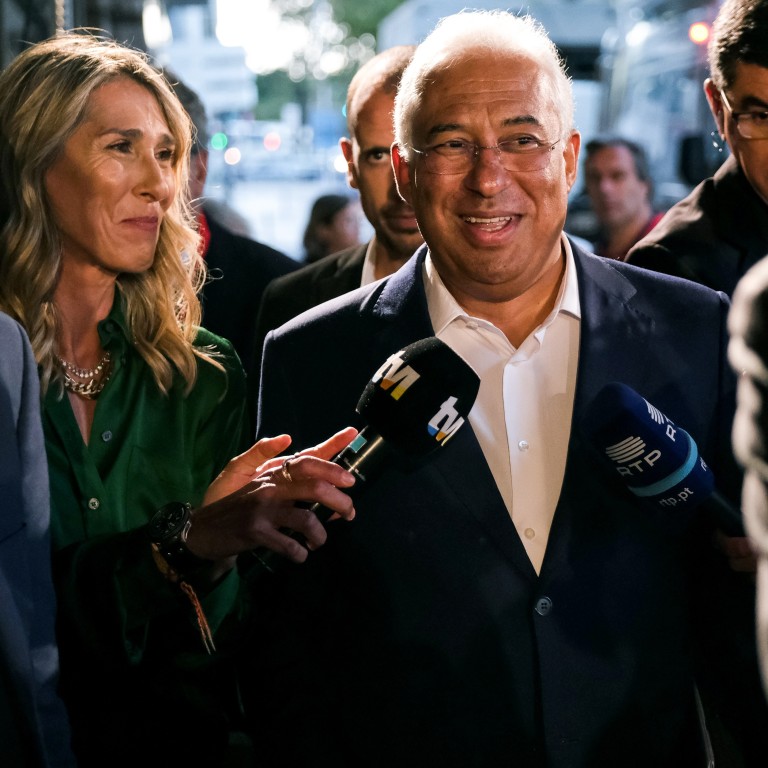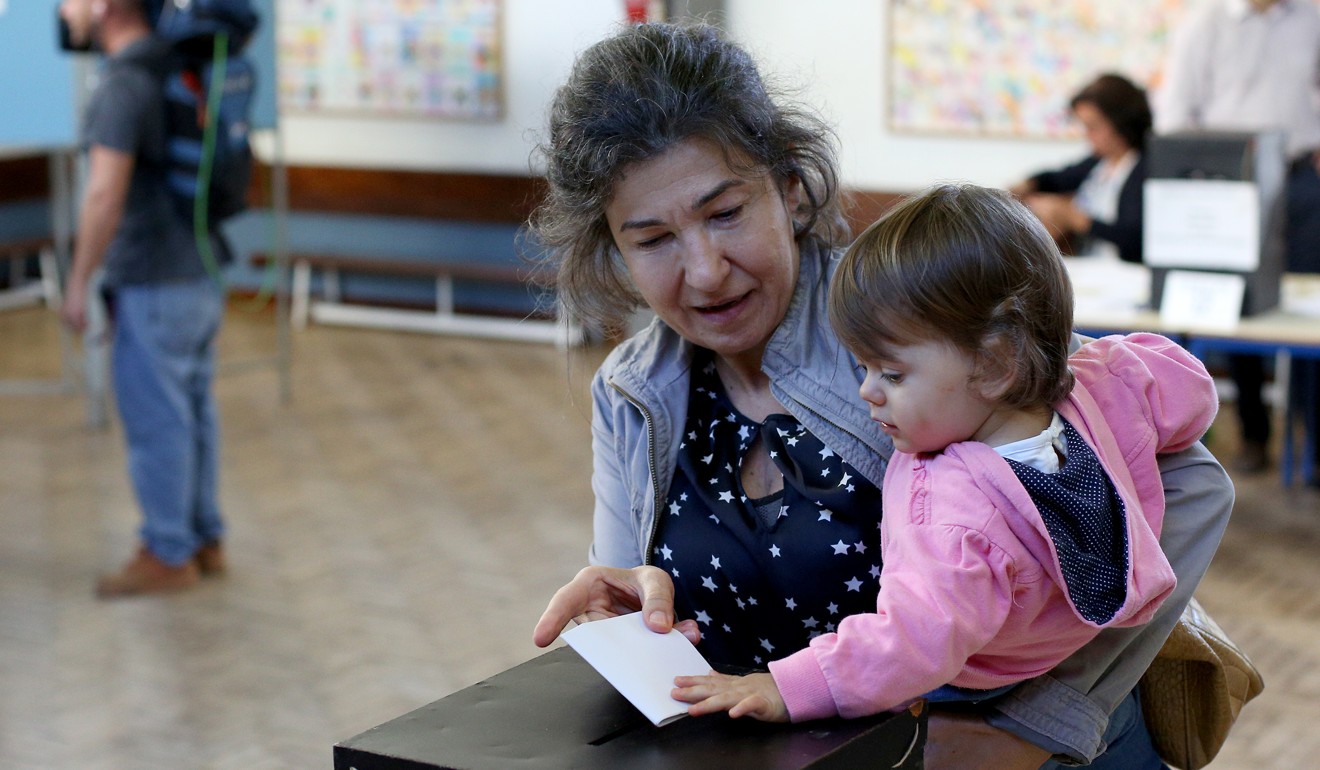
Portugal’s Socialists, led by incumbent Prime Minister Antonio Costa, win re-election but still fall short of majority
- Costa’s Socialist Party (PS) took 37 per cent of the vote, with watchers keen to see who he chooses as allies to stay in power
Portugal’s incumbent Prime Minister Antonio Costa’s Socialists won a general election on Sunday after presiding over a period of solid economic growth following years of austerity, near total results showed.
The Socialist Party (PS) took 37 per cent of the vote, followed by the centre-right Social Democrats (PSD) with 28 per cent, with 98 per cent of constituencies counted, according to the interior ministry.
That means the PS, which has governed for the past four years with the support of two smaller hard-left parties, will increase its presence in the 230-seat parliament but still fall just shy of an outright majority once all seats in the assembly are awarded.
The results buck the trend of declining centre-left fortunes and the rise of far-right populist forces seen elsewhere in Europe.

The question now is who Costa, 58, a former Lisbon mayor, will pick as his allies to stay in power.
“Whatever the result is, we must guarantee stability,” Costa told reporters just before polling stations closed and the first exit polls were announced.
After the last general election in 2015 in which the PS finished second, Costa convinced the Communists and the Left Bloc to support a minority Socialist government, an unprecedented alliance that foes nicknamed the “geringonca”, or odd contraption.
This time the Socialists have alternatives, political analyst Pedro Norton told public television RTP.
“This is an incentive for it to govern alone, by searching for ad hoc agreements” when it wants to pass laws, he said.
The Left Bloc, which finished third with nearly 10 per cent of the vote, said it was willing to once again back the Socialists.
“The Bloc is ready to negotiate an agreement that guarantees stability for the country,” the party’s leader Catarina Martins told a news conference.

The election gave Costa another potential governing partner as the upstart People-Animals-Nature party (PAN) won three per cent of the vote.
After coming to power in 2015, Costa undid some of the unpopular austerity measures introduced by the previous PSD-led government in return for a €78 billion (US$85 billion) international bailout that kept finances afloat after Portugal was clobbered by the euro zone debt crisis.
Taking advantage of the global economic recovery, he reversed cuts to public sector wages and pensions while still managing to bring the budget deficit down to nearly zero this year – the lowest level since Portugal’s return to democracy in 1974.
On his watch Portugal’s economic growth was higher than the European Union average in recent years – 2.4 per cent in 2018 – while the jobless rate fell to 6.4 per cent, the level before the debt crisis, but critics complain of low salaries, job insecurity and soaring property prices amid a tourism boom.
Retired municipal worker Antonio Tavares, 76, said he voted for the Socialists because the government raised pensions by €50-100 (US$55-110) per month.
“It’s not a lot, it should be more, but that allows one to live more comfortably,” he said after casting his ballot in Lisbon.
The PS had enjoyed a double-digit lead over the PSD for many months but the gap between Portugal’s two main parties shrunk in the final stretch of the campaign, especially after a scandal concerning former defence minister Jose Azeredo Lopes resurged.
Lopes was charged last week with abuse of power and denial of justice over his role in the alleged cover-up of an arms theft from a military depot in June 2017.
The normally affable Costa made a misstep on Friday during the last day of the campaign.
When an elderly voter challenged him during a final campaign appearance in Lisbon over the government’s handling of wildfires in central Portugal in June 2017 that killed more than 60 people, Costa lost his temper in images that quickly went viral.

.png?itok=arIb17P0)